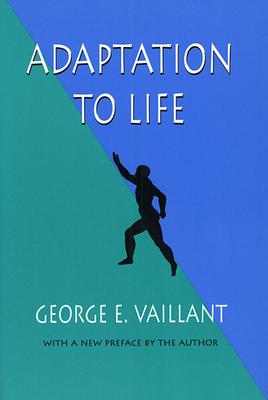Between 1939 and 1942, one of America's leading universities recruited 268 of its healthiest and most promising undergraduates to participate in a revolutionary new study of the human life cycle. The originators of the program, which came to be known as the Grant Study, felt that medical research was too heavily weighted in the direction of disease, and their intent was to chart the ways in which a group of promising individuals coped with their lives over the course of many years.
Nearly forty years later, George E. Vaillant, director of the Study, took the measure of the Grant Study men. The result was the compelling, provocative classic, Adaptation to Life, which poses fundamental questions about the individual differences in confronting life's stresses. Why do some of us cope so well with the portion life offers us, while others, who have had similar advantages (or disadvantages), cope badly or not at all? Are there ways we can effectively alter those patterns of behavior that make us unhappy, unhealthy, and unwise? George Vaillant discusses these and other questions in terms of a clearly defined scheme of "adaptive mechanisms" that are rated mature, neurotic, immature, or psychotic, and illustrates, with case histories, each method of coping.
Between 1939 and 1942, one of America's leading universities recruited 268 of its healthiest and most promising undergraduates to participate in a revolutionary new study of the human life cycle. The originators of the program, which came to be known as the Grant Study, felt that medical research was too heavily weighted in the direction of disease, and their intent was to chart the ways in which a group of promising individuals coped with their lives over the course of many years.
Nearly forty years later, George E. Vaillant, director of the Study, took the measure of the Grant Study men. The result was the compelling, provocative classic, Adaptation to Life, which poses fundamental questions about the individual differences in confronting life's stresses. Why do some of us cope so well with the portion life offers us, while others, who have had similar advantages (or disadvantages), cope badly or not at all? Are there ways we can effectively alter those patterns of behavior that make us unhappy, unhealthy, and unwise? George Vaillant discusses these and other questions in terms of a clearly defined scheme of "adaptive mechanisms" that are rated mature, neurotic, immature, or psychotic, and illustrates, with case histories, each method of coping.Paperback
$35.00